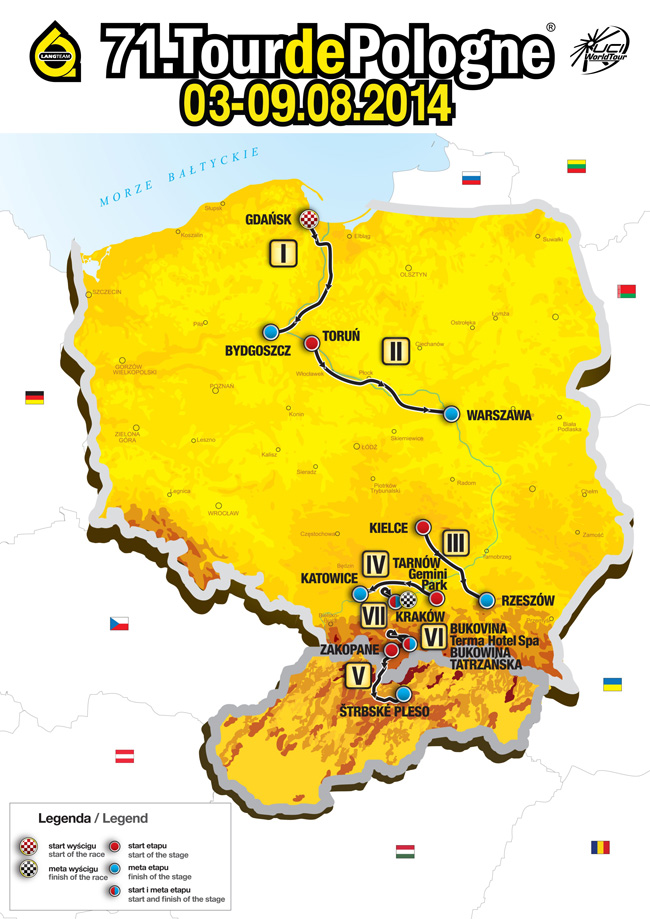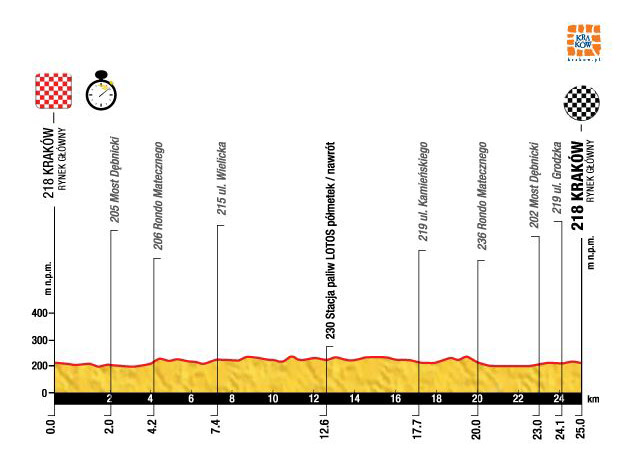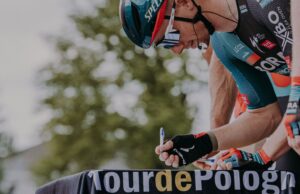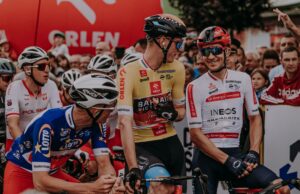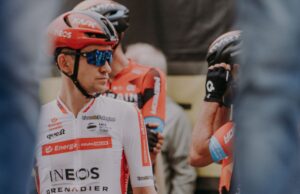A guide to 2014 Tour de Pologne
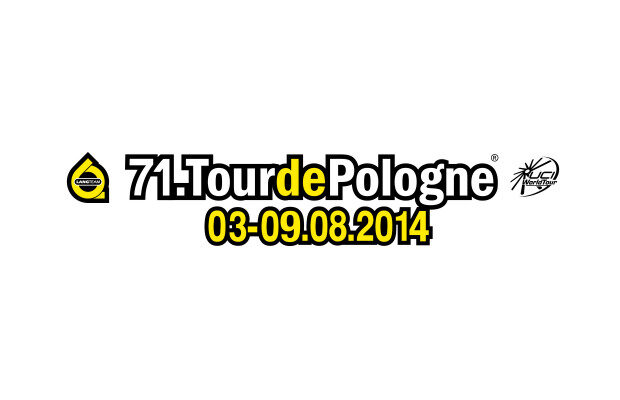
71st edition of Polish race kicks off today from shipyards of Gdansk
Poland’s only World Tour race commences today with a long and flat stage, starting a week of racing in a country where cycling gains momentum and starts to attract wider attention due to recent success of riders such as Michal Kwiatkowski and Rafal Majka.
Tour de Pologne takes place in early August, this year just a week after the finish of le Tour de France. Seven days of racing on Polish roads gives riders a chance to prepare for the Spanish Vuelta a Espana or score vital points in this intermediate part of the season. It is also an opportunity for young riders – diverse parcours offer a possibility to show the potential of both sprinters, climbers and even time-triallists.
Riders preparing the peak of form for Spanish Grand Tour often choose Tour of Austria and then Tour od Poland to get into the right gear before three weeks of racing on Iberian Penisula. This year the race travels from Baltic Sea to Tatra mountains, finishing in Poland’s key urban centres and paying a short visit to Slovakia.
The route
This year’s edition presents a balanced route, with four stages suitable for bunch sprints, two days in Tatra mountains and the final time trial.
The race starts in the northern Poland, in Gdansk. Port city hosts the first stage, as the race honours the 25th anniversary of the breakthrough elections of 1989. Gdansk was the place where Solidarnosc opposition movement takes its origins and where, back in 1980, the protests against Communist rule in Poland started, leading to the collapse of the Soviet bloc in 1989. Former Polish president and Nobel Peace Prize laureate Lech Walesa is going to ring the start bell and start the race.
During first four days, bunch sprint is the most likely to decide stage winner. The peloton is set to visit Poland’s biggest cities, making the stages incredibly long – during first four days riders will ride a total of 876 km. Each of these stages starts and finishes in the city centre, giving breakaways small chances of staying clear on the final rounds, but also prompting organizers to schedule a 10km neutral start, even on 236km long stage.
The second stage starts in Torun – birthplace of Omega Pharma-Quick Step riders – Michal Kwiatkowski and Michal Golas – and famous Polish astronomer – Nicolas Copernicus. Riders visit Warsaw – the capital of Poland – finishing in the beautiful city centre, in front of Grand Theatre.
Stage 3 takes riders south, as they ride from Kielce to Rzeszow. Sprinters will put their prowess on the display once again, this time in a tricky finale in the city centre. Stage 4 is the longest one – 236 km – and finishes in Katowice – important industrial centre.
The race hits the mountains on stage 5, as the route leads from ski town Zakopane to Slovakia. Most of the climbing is concentrated in last 60 kilometers, as the peloton visits Strbskie Pleso and climbs 8km ascent three times, finishing atop the mountain. The climb is not demanding, it averages around 4,5 – 5%. The final part may put some of the riders in difficulty – the gradient may exceed 20% on the final bends.
Stage 6 is even harder and well-known to riders, too. Held usually in very warm weather conditions, the stage may be a hell for participants – Alex Dowsett once compared the profile to „jagged teeth” (making Polish fans chuckle – name of one of the climbs – Ząb – actually means „a tooth”). The round is very demanding – narrow roads lead riders up and down in stunning scenery of Tatra mountains. It is however unwise to start admiring the views – descents are tricky and corners tight.
The climb of Zab and Sciana Bukowina (aka Gliczarów Gorny) are steep climbs, 4.5km and 5.5km respectively. Zab is steeper, although it is Gliczarów that makes riders crawl and fight to stay on their bikes as the gradient on preultimate kilometer exeeds 20%. There are 13 climbs in total – 4 demanding rounds with an uphill finish in Bukowina (4km, 5%).
Just like during last year’s edition, the race will conclude with an individual time trial in Krakow. This time the stage will be only 25km. Medieval city, one of Poland’s greatest symbols, once its capital, will be the place of the final struggle and the race winner will be once again standing on a podium, set on one of Europe’s biggest main squares.
Stage 1: Gdansk – Bydgoszcz (226 km)
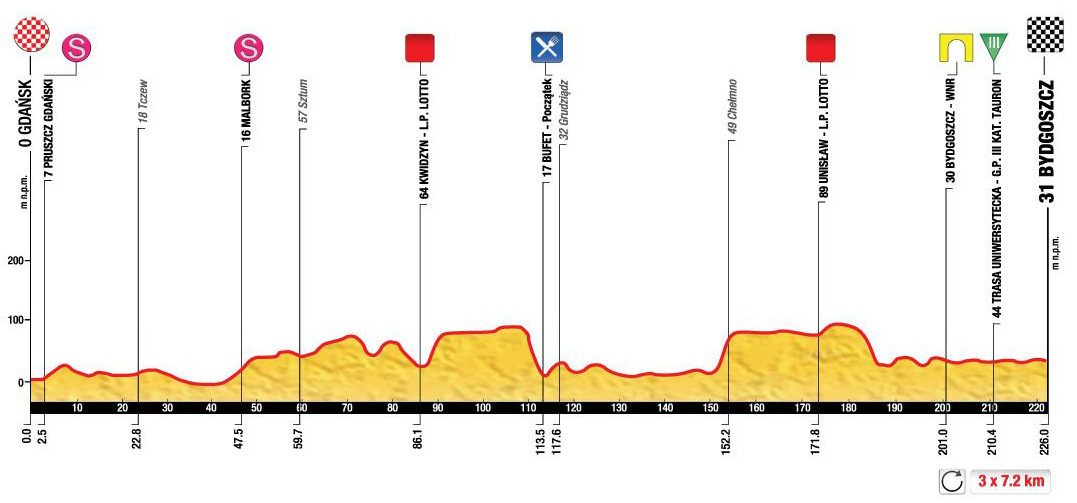
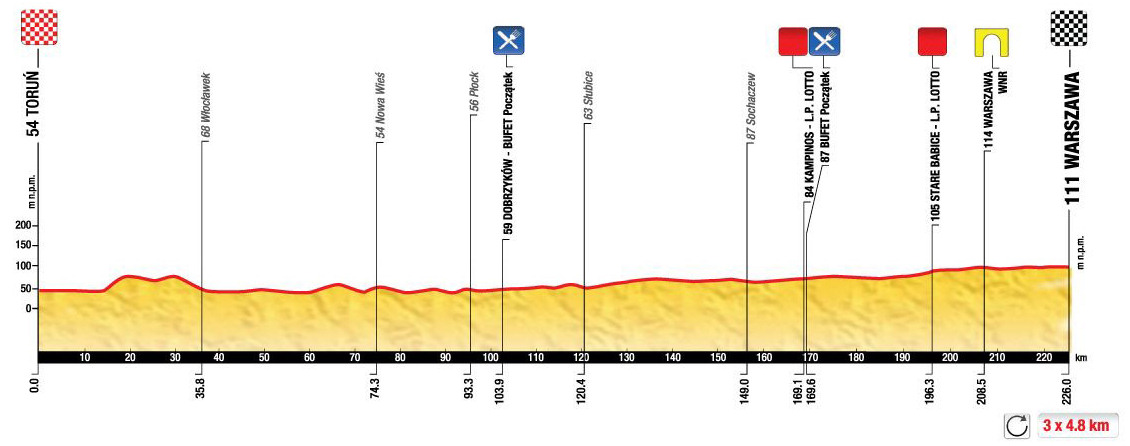
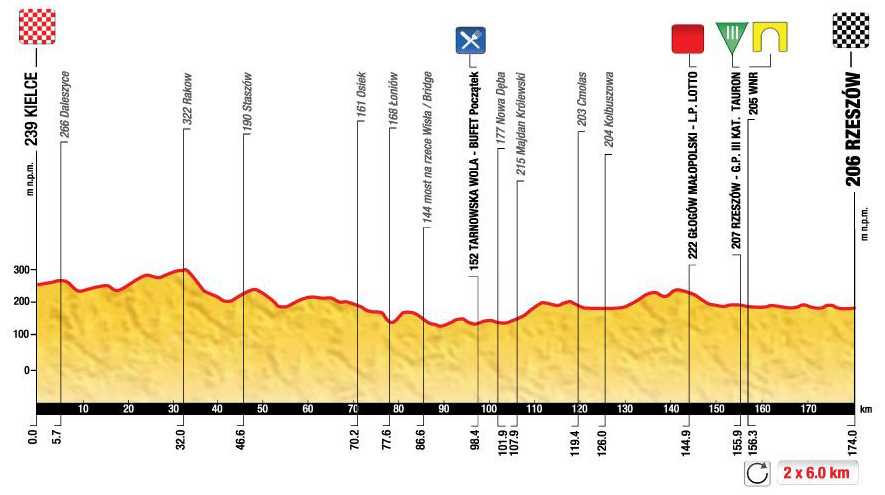
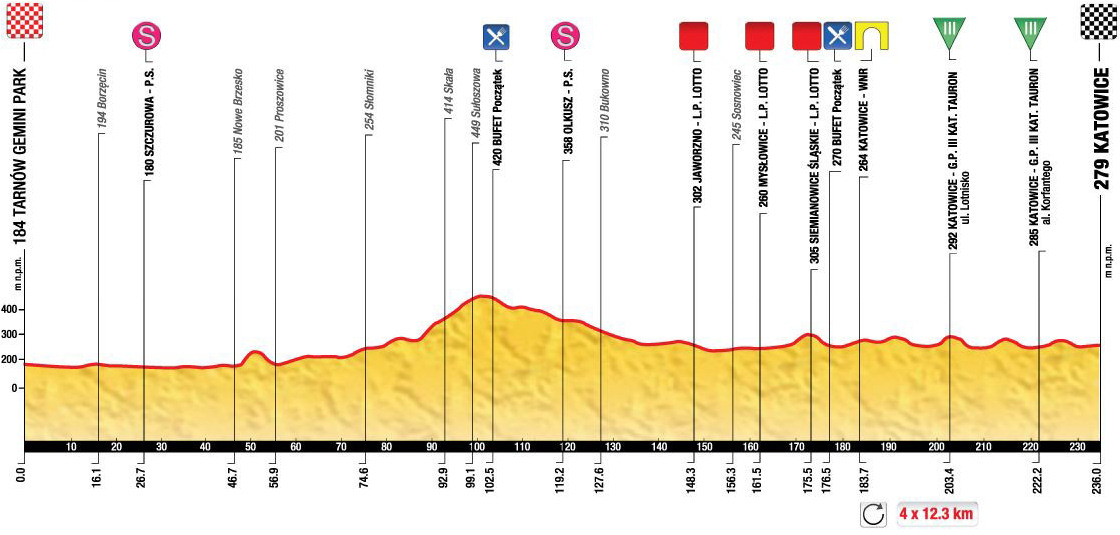
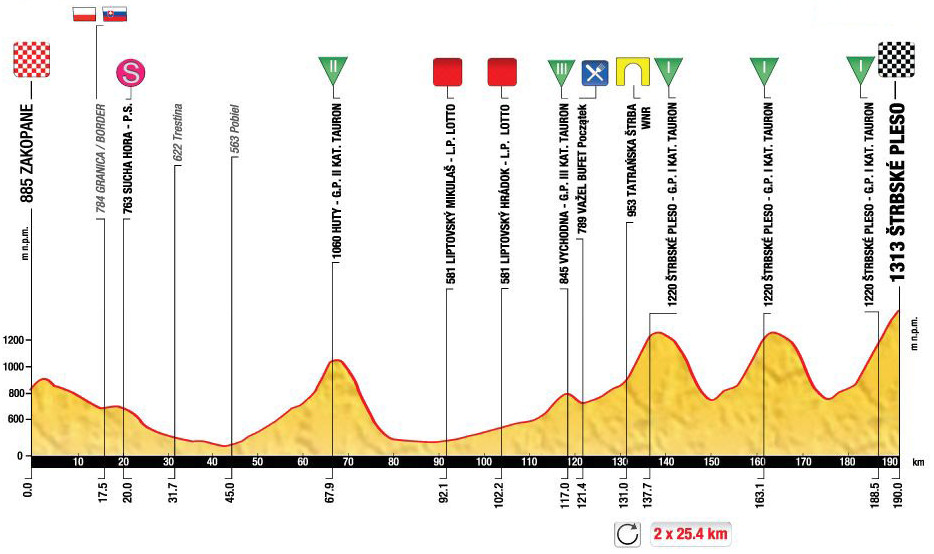
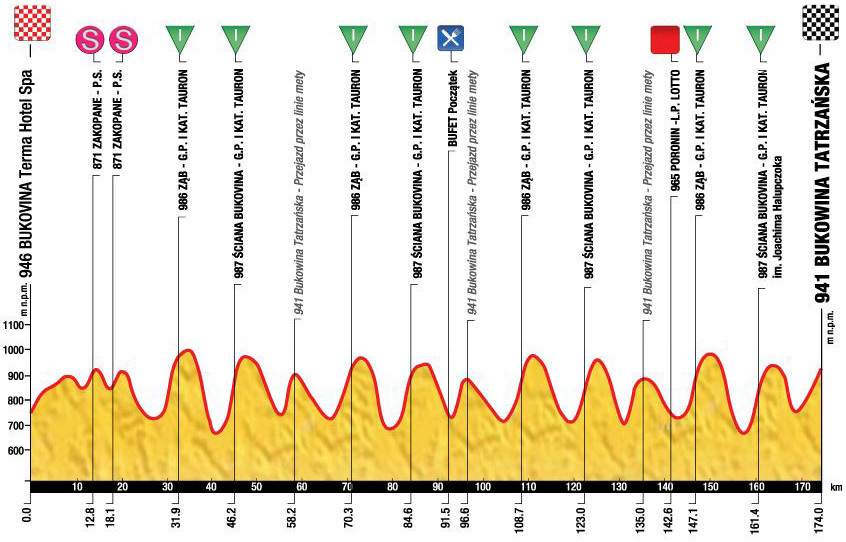
18 ProTour teams are set to make a start, with CCC Polsat Polkowice, Rusvelo and Polish National Team participating with wild cards.
Last year’s winner Pieter Weening (Orica-GreenEdge) is coming back to defend the title. The Dutchman has recently won Giro della Toscana and is gunning towards the battle with 2013 runner-up Ion Izagirre (Movistar Team) and Christophe Riblon (Ag2r La Mondiale).
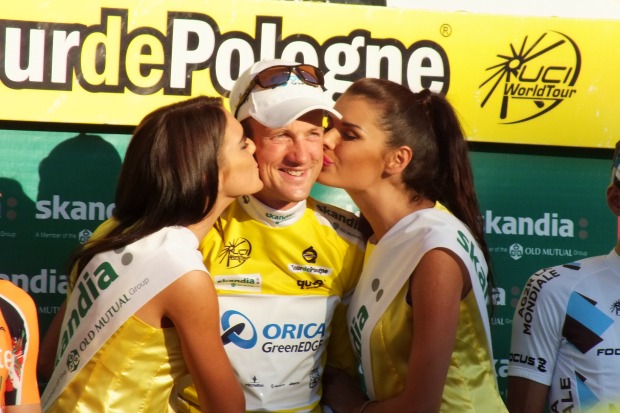
There are also some bigger names coming to Polish roads. Astana’s Fabio Aru has been announced as Kazach team number 1, while Robert Gesink is set to lead Team Belkin on his way of recovery after heart surgery.
Poland’s Rafal Majka is looking forward to mountain stages, as he will be trying to improve last year’s placing. 2014 Tour de France best climber declared that he’ll fight for the win the end, however it remains to be seen if he manages to stay in good shape till the end of the week.
Majka’s chances suffered a major blow yesterday, as UCI provisionally suspended Roman Kreuziger. Czech rider was all set to start the Polish race and help Majka achive what no other Pole has over the past decade.
Top places may also be a target for riders such as Thomas De Gendt (Omega Pharma-Quick Step), Maxime Monfort (Lotto-Belisol), Damiano Caruso (Cannondale), Alexandre Geniez (FDJ.fr) and Tobias Ludvigsson (Giant-Shimano). There are also two Colombian climbers – Giro d’Italia best climber Julian Arredondo (Trek Factory Racing) and Team Sky’s Sebastian Henao.
There are 18 Polish riders on the list – including multiple top10 finisher Marek Rutkiewicz, Polish National Champion Bartlomiej Matysiak and Mateusz Taciak (CCC Polsat Polkowice). Polish National Team brings 8 young riders, including Kamil Gradek, Paweł Franczak, Bartosz Warchoł and race’s youngest competitor Przemysław Kasperkiewicz.
Polish names pronunciation
Majka chasing historic win
Poland’s best climber, Rafal Majka, is on the quest of winning national race for the second consecutive time. 24-year-old took 6th place in this year’s Giro d’Italia and then went on to win 2 mountain stages and polka dot jersey at the Tour de France. He is now chasing the victory in Poland – a triumph he missed out last year.
Polish rider is unsure whether he can maintain such a good shape throughout the week, but declares he will be fighting to finish what he started last year.
I came here to fight, not to ride around and go home. I don’t know how my legs respond, but I will fight and together with my teammates we will try to win this race. Obviously, you cannot say: “Rafal Majka is coming to win”. It’s not that simple, I am just a human, it’s bike racing and I am sure it’s goint to be hard
– Majka said during the press conference, prior to heading to Gdansk.
It has been over 10 years since a Pole won Tour de Pologne. To the day, Cezary Zamana remains the last Polish winner of the race. He took the overall win back in 2003 and is also one of the last Polish stage winners.
Technical details
Race classifications:
– general (yellow jersey)
– points (white and red jersey)
– best climber (pink jersey)
– most active rider/special premie classification (navy blue jersey)
– best Polish rider
– team classification
Time bonuses:
– finish: 10 – 6 – 4
– intermediate sprint: 3 – 2 – 1
Points awarded at the finish line: 20 – 19 – 18 -17 -16 – 15 -14 – 13 – 12 – 11 -10 – 9 – 8- 7 – 6 – 5 – 4 – 3 – 2 – 1
Moutains classification:
– 1st category climb: 10 – 7 – 5 – 3 – 2
– 2nd category climb: 5 – 3 -2 -1
– 3rd category climb: 3 – 2 -1
Points scored on Joachim Halupczok 1st category Premie (preultimate climb of stage 6) are doubled.
Most active rider classification:
Special premie: 3-2-1.
TV coverage:
August 3: 5:30 – 7pm
August 4: 3:15 – 4:45pm
August 5: 5:30 – 6:55pm
August 6: 3:15 – 4:45pm
August 7: 5:30 – 7pm
August 8: 5:30 – 7pm
August 7: 5:15 – 6:55pm


